“I sell the items by collecting it from various places like Nambol, Kakching, Pallel, Lamlai etc. The finished products are brought to the market by craftsmen.” says Leimajam Ranjit.
We order the material and price depends from one craftsman to another. Some of the varieties sold in his shop are Fak (mat), Kabuk Fak, Ceiling Fak, Kakching Fak, Thumok, Polang (containers made of bamboo), Moreh Meifu (Chullah), Sham (a container used mainly by hill people), Lee Polang etc.
Leimajam Ranjit, 42 of Langthabal Kunja is doing this business since the last 12 years.
The price of bamboo and cane products is increasing in the last few years. This is because of the decreasing number of handicraft workers in the State. Many skilled handicraft workers have changed their occupation while the products are still in big demand says Ranjit.
Altogether there are 11similar shops selling the same product in our market known as “Nupa Keithel” located at BT road. All items available in these shops are indigenous products and one can earn a profit of about Rs 7000-10,000 a month on an average.
Price of a Kabuk Fak measuring 6 feet by 9 feet in size are sold at a price of around rupees 270 but it is not the fixed rate as it depends from time to time. A Ceiling Fak with a size of 6 feet by 12 feet cost rupees 450.
Kakching Fak is a small Fak of 2½ feet by 4 feet in size sold at Rs 75 meant for Jeiga customary rituals of the meiteis. The price of a Sham (luggage carried at the back) is rupees 120-150 and the price of a Moreh Meiphu is Rs 220. Ranjit believes that the Moyon tribes or the Tarou tribes make most of the Sham products brought to the market.
Li polang is being made at Tera with raw materials brought from the hills. We also sell fish nets in the rainy season for good sale. Small mats measuring 2.5 feet by 4 feet meant for customary occasion like Jeiga’ are sold at Rs 75. These mats are made in Kakching.
In an average they can make a sale of about Rs 3000 a day. But during the season this figure goes up to about Rs 10,000 a day. There are times when I do not make any sale or just Rs. 400 a day as selling capacity. Usually I sell around Rs(1400- 500 – 2000) in a day.
L. Sanatomba, 47, a handicrafts from Chana (Lamlai) of Imphal East makes Ceiling Fak (mat used in making ceiling) and Faklen also known as Lou-yei Fak (a mat used in harvesting rice crop).The raw-materials used in making such mats are “Yenthou (a wild hard straw plant found abundantly in Manipur) and Peiya (pieces of bamboo sheet). It takes more than a day in completing a Ceiling Fak and about thirty days in making a Faklen.
A faklen measures 14 feet by 22 feet. It is a compulsory item in the rural areas at the time of rice crop harvesting. On raw material we spent Rs 1 for one piece of Yenthou.
This year we are able to make only four faklen (Lou yei fak). It takes 6 months to complete four lou yei fak. The price of a Faklen is within the range of Rs.9000-10,000. About 500 pieces of “Yenthou” is required to make a Faklen.
Everyone in my family helps me in making the Faklen. Poinu (Dec to Jan) the harvesting season in Manipur is the pick time for selling Fak items and I sold four Faklen in the last harvesting season.
L. Yumjao, 39, another businessman from Langthabal Kunja Imphal West who owns a shop at Nupa Keithel since the last four years inherited the business of selling indigenous products from his parents. Earlier he was selling Bamboo products at Masjid Road Imphal.
The items found in his shop are Kouna Fak, Ngarubak, Phiruk, Mora, Meiphu, Yangkok etc.
KounaFak is made in Khangabok and its price of it differs according to the quality. A KounaFak costs Rs 650 per piece the quality is good.
Phiruk (A bamboo casket carried by ladies during marriage ceremony etc) is made in Pallel and its price is Rs 650 and likely to increase. Ngarubak is made in Thoubal and its price is Rs 50-55 per piece.
Yangkok (a round shape flat bamboo Rice chaff separator) is made in Pallel but they reached Imphal through traders from Kakching. Its price is Rs 200.
Meiphu sold in my shop are made at Mongsangei and Keishampat. The price of a medium size Meiphu is Rs 100.

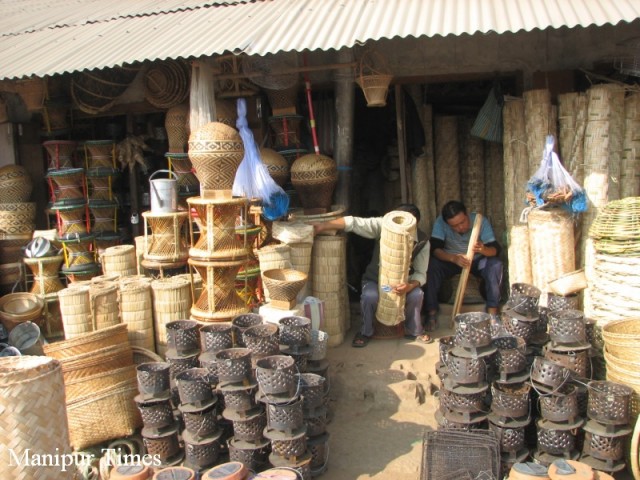
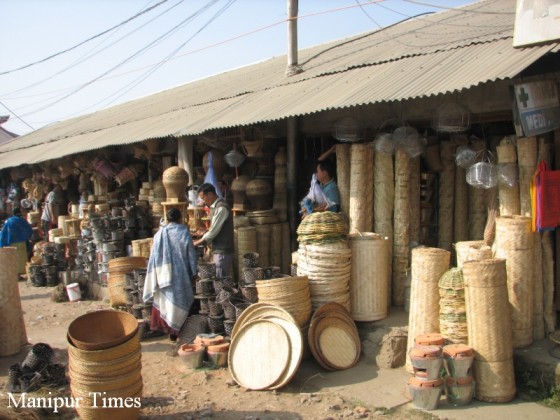
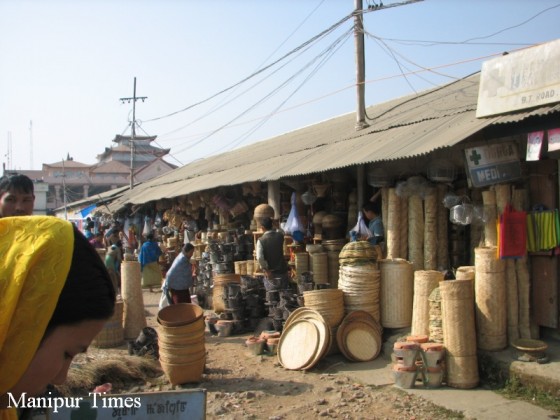
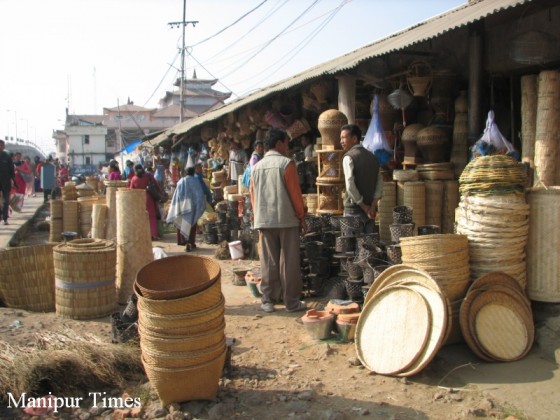
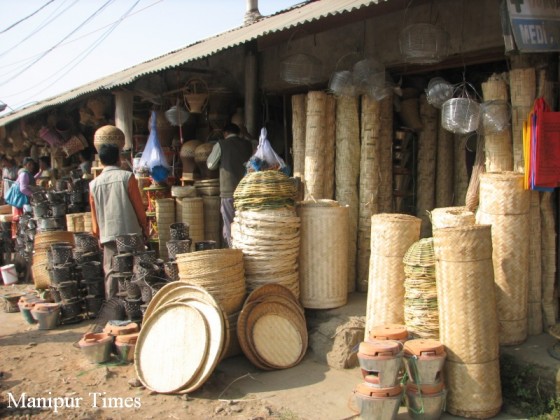
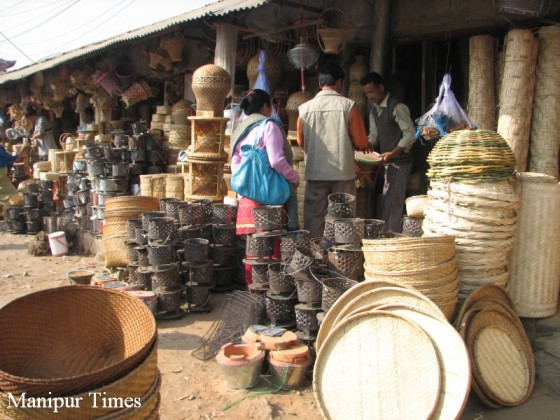
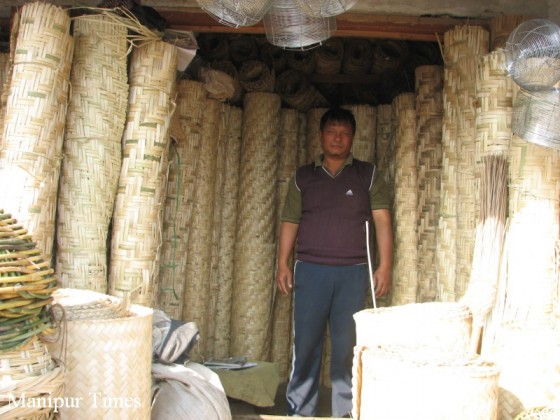
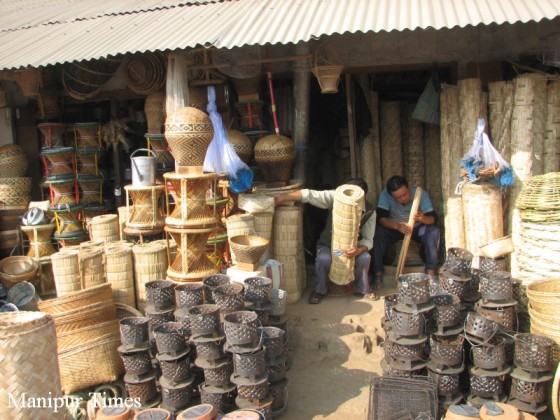
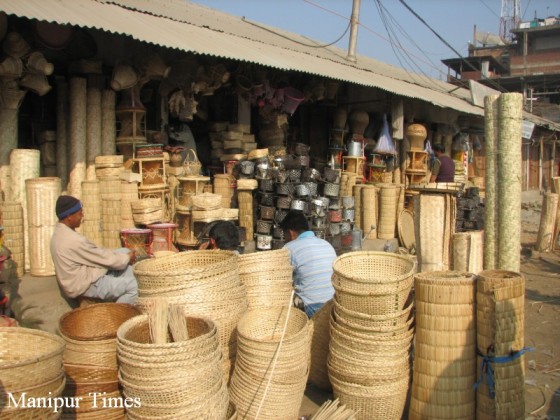
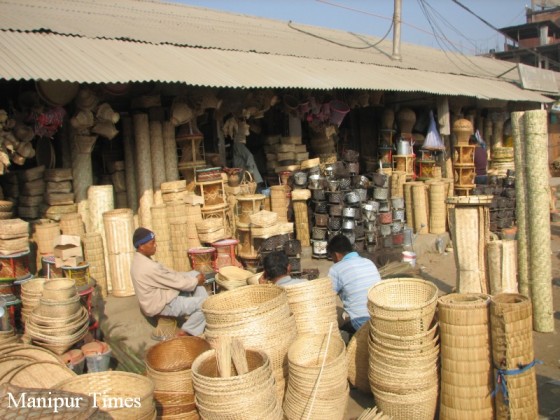



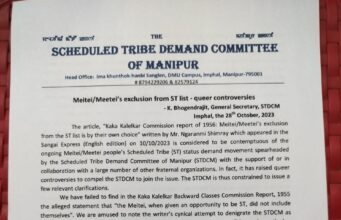







Ym chaothokchaningaini
Don’t feel pity dear admin, Instead feel proud and its a good business than any other…